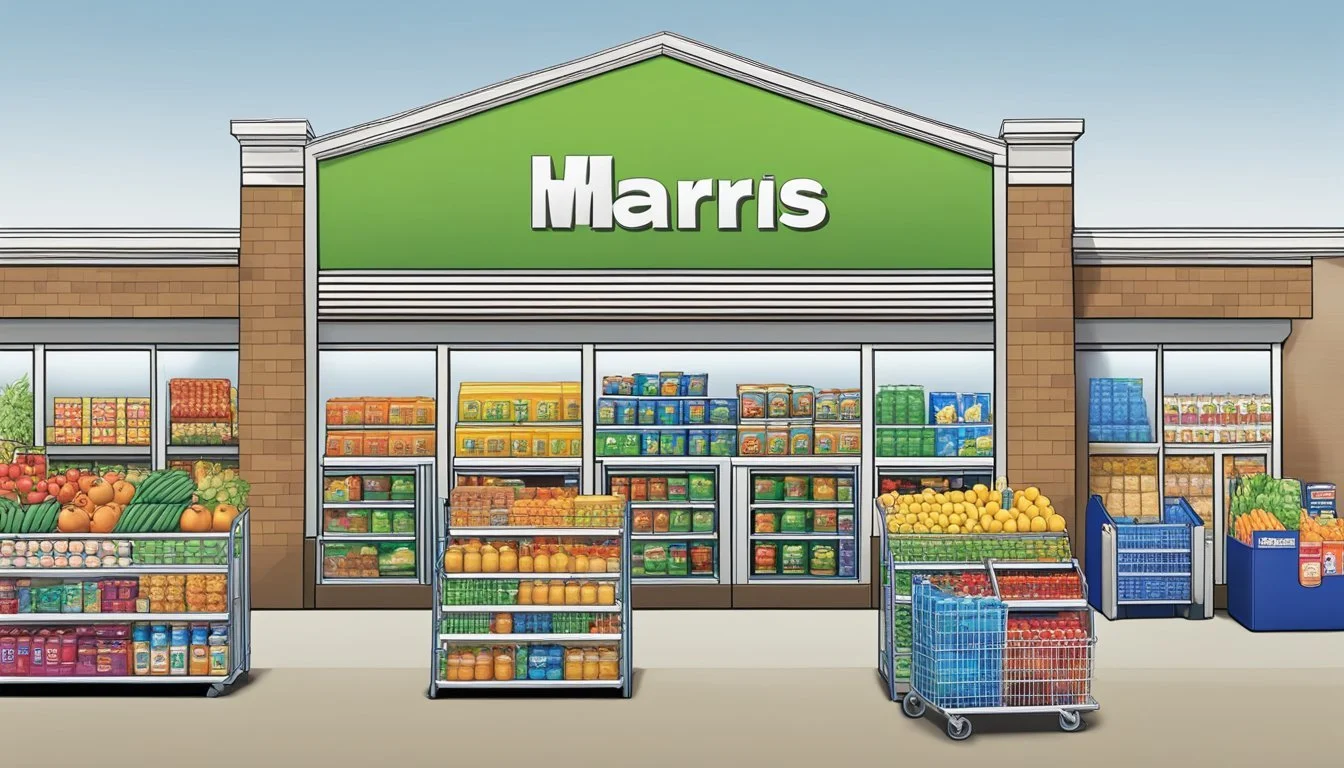Is Meijer Cheaper Than Harris Teeter?
A Cost Comparison Guide
Part of Our Grocery Store Guide with Details on Meijer Prices and Harris Teeter Prices
When it comes to grocery shopping, price is often a decisive factor for many consumers. Among various grocery stores, Harris Teeter and Meijer are two prominent chains that operate in different regions of the United States. Harris Teeter, known for its wide variety of goods and customer service, is generally considered a higher-end grocery option. Meijer, on the other hand, combines groceries with department store selections, offering a wide range at generally affordable prices.
The question of whether Meijer is cheaper than Harris Teeter involves more than just comparing the numbers on a receipt. It requires an analysis of the overall value provided, including the range of products, quality, and availability of discounts and promotions. Consumers might find that while the shelf price on certain items may be lower at one store, the other might offer savings through loyalty programs or frequent sales.
In comparing prices, some reports have indicated that stores like Harris Teeter can offer competitive pricing on select items, sometimes even cheaper than other stores depending on the promotions available at the time. However, discount-oriented stores like Meijer are often recognized for providing consistently low prices across a broad range of products. This provides a draw for budget-conscious shoppers looking to stretch their grocery dollars without participating in sales or loyalty programs.
Comparative Price Analysis
This section scrutinizes the varying pricing approaches of Meijer and Harris Teeter, examining their weekly promotions and the cost of their private label items to determine which retailer offers the lower prices.
Overall Pricing Strategies
Meijer's pricing structure is designed to offer competitive prices on a wide range of products. They often provide a generous selection of general merchandise along with groceries, which can influence their overall pricing strategy. In contrast, Harris Teeter tends to position itself as an upscale supermarket chain, which sometimes entails higher average prices on their products. However, both stores frequently feature sales and discounts that can significantly reduce the total cost at checkout.
Weekly Sale Prices and Deals
Both Meijer and Harris Teeter entice customers with weekly sales and special deals, which can affect the overall price comparison between the two. Meijer may offer Buy One, Get One (BOGO) free deals or deep discounts on certain categories each week. Harris Teeter similarly rolls out weekly specials that include e-VIC deals exclusive to members of their loyalty program, which can result in substantial savings for these shoppers.
Private Label Products Pricing
When considering private label products, Meijer's store brand often falls into a more affordable pricing bracket. The retailer has an extensive private label line that typically offers lower prices than national brands. Harris Teeter also presents a range of store brand products, which are competitively priced. Shoppers may find these items to be cheaper compared to similar name brand products, particularly when they are on sale.
Product Selection and Quality
In the realm of grocery retail, Meijer and Harris Teeter present varying options for consumers, distinguished by the availability and quality of store brands, national brands, and specialty products within their establishments.
Store Brand versus National Brands
Meijer offers a comprehensive range of store brand products, which tend to be more economical than national brands. Customers usually find these products to be of similar quality to their nationally branded counterparts, encompassing essential categories such as dairy, produce, meat, and pantry staples.
Harris Teeter, on the other hand, is known for a selection that also juxtaposes store brands with national brands. The quality of Harris Teeter's store brand items is generally well-regarded, particularly in the fresh produce and organic products sectors, providing consumers with a cost-effective alternative without compromising on quality.
Availability of Specialty Products
Meijer maintains a robust inventory including both conventional and organic produce. Their stores are known for offering a vast array of products which cover a spectrum from basic groceries to specialty items, accommodating the needs of various dietary preferences and lifestyle choices.
Harris Teeter excels in providing an extensive selection of specialty products. It is noteworthy for its fresh and organic produce assortment, catering to health-conscious customers and those seeking premium quality groceries. Harris Teeter's attention to the quality and variety in its specialty section often positions it as a go-to destination for discerning shoppers.
Shopping Convenience
When comparing Meijer and Harris Teeter, shopping convenience is a significant factor for the consumer. Each chain has cultivated a unique approach to store layout, online presence, and delivery options, crucial for any savvy shopper making an informed decision.
Store Layout and Navigation
Meijer stores are spacious and designed with wide aisles. They organize their merchandise effectively, making it easy for customers to find what they need. The store includes a range of departments beyond groceries, such as clothing and electronics, which could affect the time spent shopping if customers are seeking a variety of items. On the other hand, Harris Teeter focuses heavily on the grocery shopper experience with a clear and logical layout, promoting an efficient trip for those focused solely on food items.
Online Shopping and In-Store Pickup Options
Both Meijer and Harris Teeter offer online shopping options with in-store pickup. Meijer's service is known as Meijer Pickup, which is free on orders over $50 and allows customers to schedule their pickup times. This can save shoppers a significant amount of time and make the checkout process more convenient. Harris Teeter offers a similar service with Harris Teeter ExpressLane. It provides timeslot reservations for pickup, though there is a fee associated with the service. For delivery options, both retailers partner with third-party services like Instacart, ensuring customers can have their groceries delivered to their location, which is a key service for those who value their time or are unable to visit a store physically.
Consumer Savings Programs
Consumer savings programs at grocery stores like Meijer and Harris Teeter provide shoppers with opportunities to save on their grocery bills. These programs often include membership benefits and rewards, as well as loyalty programs that help customers access special pricing, coupons, and promotional deals.
Membership Benefits and Rewards
Meijer offers a program known as mPerks, which includes digital coupons and personalized rewards. Customers can:
Save: By clipping digital coupons which are easily accessible via Meijer's app or website.
Earn Rewards: For every dollar spent, customers amass points that can be redeemed for discounts on future purchases.
Harris Teeter offers a VIC (Very Important Customer) program, featuring:
Discounts: On advertised specials, where members have access to lower prices than non-members.
E-Coupons: Which can be linked to the VIC card for additional savings.
Comparison of Loyalty Programs
When comparing the two, consider the following aspects of their loyalty programs:
Savings Accessibility: Meijer's mPerks allows members to select coupons and rewards digitally, whereas Harris Teeter's VIC program may offer automatic discounts at checkout.
Coupon Variety: Both retailers offer a range of coupons, but the ease of use and the personalization of offers via the Meijer app could be a deciding factor for tech-savvy shoppers.
Each loyalty program is designed to provide value back to the customer, incentivizing continued patronage through a combination of discounts, offers, and rewards. Customers are encouraged to sign up for these free programs to start earning and saving immediately.
Brand Comparisons
This section provides a detailed look at brand comparisons, focusing on pricing, market presence, and brand reputations of supermarket chains, namely Meijer and Harris Teeter.
Supermarket Chain Overview
Harris Teeter is a grocery chain that operates primarily in the southeastern United States. It is known for a wide selection of items and clean stores, offering a premium shopping experience. Meijer, on the other hand, is a supercenter chain with a large footprint in the Midwest, known for its combination of grocery and department store items.
Comparing prices across different supermarket chains can be challenging due to regional variations and periodic discounts. It's important to consider the typical product mix each retailer offers. Harris Teeter often provides specialty items and organic products, which can lead to higher prices compared to conventional grocery items.
Regional Presence and Market Analysis
Meijer's presence is predominantly in the Midwest, while Harris Teeter is concentrated in the Southeast. These regional focuses impact the pricing strategies of both chains. Meijer's approach to pricing competes with Midwest-based chains as well as national discount retailers like Walmart and Aldi.
In a regional pricing analysis, both direct competition and consumer price sensitivity play roles. Walmart consistently positions itself as a price leader, often setting the benchmark for affordability. Chains like Kroger, which competes in the same markets as Harris Teeter and sometimes overlaps with Meijer, can influence regional price dynamics through its pricing and promotions.
Market Presence:
Harris Teeter: Southeastern US
Meijer: Midwest
Competes with: Walmart, Aldi, Kroger
Understanding the consumer demographics and their expectations in each region is essential when analyzing supermarket chain pricing. Discount brands resonate well where the audience prioritizes savings, affecting the competitive landscape for chains like Meijer and Harris Teeter.
In summary, direct price comparisons are influenced by regional market conditions, product mixes, and consumer preferences. Each store's pricing strategy reflects their efforts to balance quality offerings with competitive pricing to meet their customer base's needs.
Customer Experience
When comparing Meijer and Harris Teeter, the customer experience is a vital aspect that includes customer service and satisfaction along with the in-store shopping experience. These factors significantly influence a customer's choice between the two stores.
Customer Service and Satisfaction
Meijer is known for its friendly staff and efficient service. Customers often cite the helpfulness of employees when requiring assistance. Additionally, Meijer typically offers competitive prices, which boosts customer satisfaction, especially for families looking to stretch their grocery budgets.
Harris Teeter, on the other hand, often receives high ratings for customer service. Their associates are recognized for being courteous and willing to go the extra mile for customers. They have a strong focus on creating a pleasant shopping environment, which can enhance overall satisfaction.
In-Store Shopping Experience
The in-store experience at Meijer is notable for its variety and availability of products. Customers appreciate the wide aisles and clean shopping environment. Moreover, Meijer often operates 24 hours, providing flexibility for customers to shop at any time, which is beneficial for those with irregular schedules or family commitments.
Harris Teeter stores are typically well-organized and feature an inviting atmosphere. A defining element of their in-store experience is the emphasis on high-quality produce and an extensive selection of premium products. While their prices may be higher, the focus on quality appeals to customers who prioritize the caliber of their groceries.
Additional Factors to Consider
When comparing Meijer and Harris Teeter, shoppers should evaluate aspects other than grocery prices. Factors like available household necessities and community contributions often influence consumer choice.
Household Necessities Beyond Groceries
Meijer often provides a broad range of household essentials, including auto supplies, pet items, and home goods. They offer various sizes and brands, ensuring shoppers can find most of their shopping list in one place. This variety extends beyond food items, which can be a significant benefit for customers looking to consolidate shopping trips.
Harris Teeter focuses more on the supermarket experience, with a concentration on groceries rather than a wider array of household necessities. While they may carry a selection of household items, their range is generally not as extensive as Meijer's.
Contribution to Local Communities
Both Meijer and Harris Teeter can have an impact on local communities, but their approaches might differ.
Meijer has a history of community involvement through charitable contributions and local partnerships. Their presence in a community often involves local event sponsorships and support for community projects, which can enhance their local reputation and customer loyalty.
Harris Teeter, while smaller in scale, has its own ways of contributing to the communities it serves. Through initiatives like the "Together In Education" program, they provide financial support to local schools, which can be a deciding factor for shoppers who prioritize community engagement when considering where to shop.
Market Trends and Consumer Behavior
In comparing Meijer and Harris Teeter, it's crucial to factor in how economic shifts and health trends influence shopping patterns and consumer preferences.
Impact of Economic Changes on Shopping Patterns
Recent surveys indicate that economic fluctuations significantly affect where consumers choose to shop. Meijer tends to attract customers seeking value due to its competitive pricing strategy. A study by the Consumerpedia podcast highlighted that shoppers are increasingly prioritizing lower prices when economic conditions are uncertain. This trend benefits stores like Meijer, which are perceived to offer more competitive prices compared to Harris Teeter.
Economic Downturn: Shoppers seek bulk deals and discounts — often found at Meijer.
Inflation: Budget-conscious customers might prioritize lower-cost options.
Inflation and economic downturns lead shoppers to adjust their habits, often increasing their patronage at stores perceived as more affordable.
Consumer Preferences and Health Trends
Research illustrates that consumer preferences are increasingly leaning towards health-conscious choices. Surveys by health-focused researchers reveal a demand for organic and natural products. In response, both retailers have adapted their inventory to include healthier options, though Harris Teeter often markets itself as a leader in quality, fresh produce and organic products.
Health Consciousness:
Organic Produce: Heavily demanded by today’s shoppers.
Diet-Specific Products: Gluten-free, keto, and vegan items are on the rise.
Shoppers also show loyalty to brands that align with their health goals, affecting how retailers like Meijer and Harris Teeter stock their shelves and market their products.
Conclusion
When shoppers compare Meijer and Harris Teeter, they often find that both stores offer competitive pricing on a variety of grocery items. Specifically, shoppers can save money by choosing Harris Teeter for select items, as it has been reported to be marginally cheaper than Ingles, and may present similar savings compared to Meijer.
Harris Teeter:
Price advantage: Slight edge in overall cost compared to Ingles.
Meijer:
Variety: Broad selection historically, but current reports indicate not always the lowest prices.
It should be noted that local price variations can occur, and consumers might find differing results based on location and promotions. Consumers are advised to:
Compare weekly ads: Look at both Meijer and Harris Teeter flyers for current deals.
Use loyalty programs: Maximize savings with each store's rewards or discount programs.
Bulk buying: Consider purchasing in bulk for non-perishable items when discounts are offered.
Seasonal shopping: Take advantage of seasonal produce at both stores, which can offer savings.
The grocery stores mentioned excel in different areas, but for consumers looking to tighten budgets, every cent counts. Staying informed on store specials and utilizing available saving strategies can further aid in reducing grocery bills over time.









